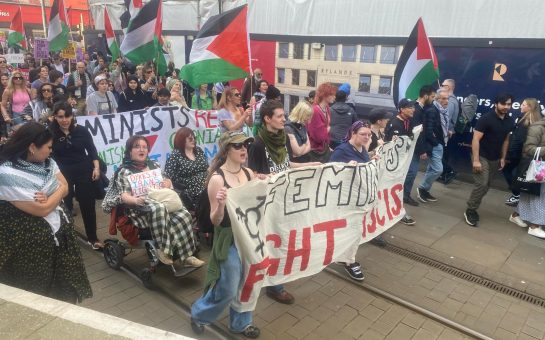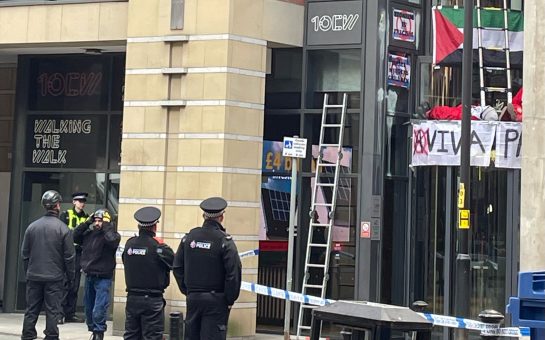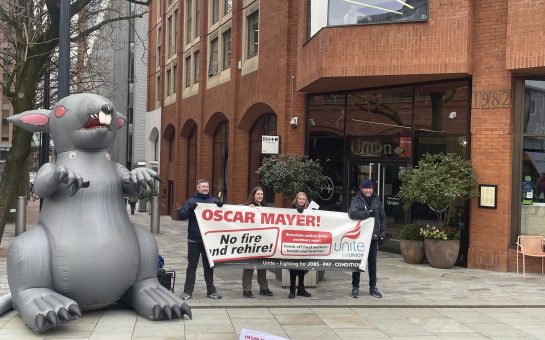A Manchester human rights group gathered outside the Town Hall inquest into the death of Jordan Begley to question the police’s use of Taser devices.
Mr Begley, 23, died on July 10 2013 following a Greater Manchester Police officer’s use of a Taser device at his home in Gorton.
Family members of Mr Begley joined representatives of Refugee and Asylum Seeker Participatory Action Research (RAPAR) to demonstrate on Lloyd Street as the inquest process continues.
RAPAR stated that their concerns relate to the general issues surrounding the use of Tasers by police officers in the UK.
“Ultimately, the officer who pulls the trigger is individually accountable in law for the amount of force they use,” said a RAPAR spokesperson.
“The question is ‘when is it really appropriate to use such a potentially lethal weapon on a member of the public?’
“That is what needs to be crystal clear and it is what we at RAPAR believe everyone who is policed by Taser carrying police officers want and have a right to know.”
The Independent Police Complaints Commission (IPCC) described the ongoing investigation and inquest processes relating to Jordan’s death, and that of two other men in 2013, as having ‘raised further concerns’ about Taser use.
Speaking to MM in 2011, Greater Manchester Police’s Chief Constable Peter Fahy said: “We train our officers to a very high level to use Taser and they have to pass the course to get one.
“We take this very seriously and a Taser overall is much safer than hitting someone with a baton.”
Originally introduced in 2003 as an alternative to firearms, the Taser is a controversial weapon that uses electrical current to disrupt a person’s voluntary control of muscles.
Although the police refer to the Taser as a ‘less lethal option’, recorded complaints about stun gun use to the IPCC have increased by 211% between 2009 and 2013.
Greater Manchester Police placed third in number of stun gun uses in 2013, with 816 uses recorded.
An IPCC report earlier this year warned that police stun gun usage had soared by 232%.



